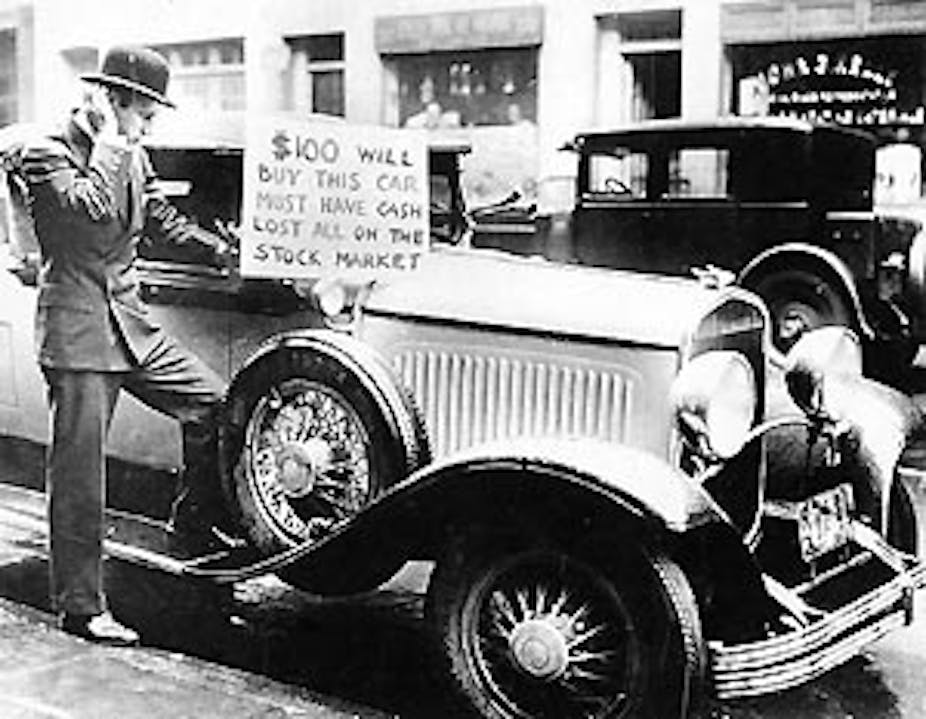Herbert Hoover was wrong about America. During a press conference in February 1931 - amid the depths of the Great Depression - he famously warned that the American values of “rugged individualism” risked being diluted by “European-styled socialism”.
Hoover suggested that the Depression presented a dilemma as to “whether the American people, on one hand, will maintain the spirit of charity and mutual self-help through voluntary giving and the responsibility of local government, as distinguished on the other hand, from appropriations out of the Federal Treasury for such purposes”.
In short, his fear was that too much federal involvement would weaken the bonds of local connection and civil society, displacing religious and charitable organisations and undermining American ideals.
Hoover was wrong because – as Franklin Roosevelt showed in the New Deal – American values were not exclusively individualist. Instead, they also contained an important egalitarian, if not communitarian, commitment to fairness.
In recent weeks, Hoover’s arguments have been resuscitated by conservative intellectual [Charles Murray](http://en.wikipedia.org/wiki/Charles_Murray_(author). In a widely commented-upon new book, Coming Apart: The State of White America, 1960-2010, Murray advances the thesis that a decline in basic individual values – most importantly, of industriousness – explains an erosion of social mobility and America’s exceptionalist identity.
To be sure, in describing the fragmented nature of American society, there is much to commend in Murray’s account. He describes a society in which elites and the general public have equally withdrawn from community engagement. However, his view is fundamentally flawed as he emphasises the pervasive effects of excessive statism to explain societal trends over a period in which the state has been in more or less continual retreat from its postwar peak of influence.
Indeed, that his argument kicks off in November 1963, with the premature end of the Kennedy administration, is somewhat telling, as it was Kennedy who – as Ronald Reagan later stressed – inaugurated the current trend to cutting taxes.
To be sure, no single variable explains the social, economic and demographic shifts that have characterised the past half-century. Yet a lack of individualism is not the problem. Murray would have seen this, had he offered a more encompassing view. Contrary to free-market nostrums, post-Depression era America was marked by the extensive use of wage and price controls, which derived considerable popular legitimacy from a commitment to fairness.
Indeed, Republican President Eisenhower advanced a doctrine of “shared responsibility” for economic stability. Such appeals in turn succeeded only by virtue of the existence of a postwar trust in government: in 1958, 73% of Americans stated that they could trust the government either “just about always” or “most of the time”. Moreover, this trust was paralleled by a mass scepticism in markets, as only 14% of Americans blamed government for economic instability.
What explains the demise of these controls, and the broader sense of fairness upon which they relied? Over the 1960s and 1970s, the experiences of Vietnam and Watergate would undermine faith in government, giving rise to a much more libertarian ethos. By 1978, only 25% of Americans would assert that they could trust the government “just about always” or “most of the time” by 1980. Paralleling these general shifts, the percent of the public blaming government for inflation would rise from 14% in 1959 to 51% in 1978.
As scepticism in government assumed the force of a self-fulfilling prophecy, successive inflationary crises – in the “great stagflations” of the 1970s – and financial crises – from the savings and loan crises of the late 1980s to the global financial crisis of recent years – wracked the US economy. Yet with each crisis, the wave of deregulation has been advanced in tandem.
In this light, Murray may be underrating the importance of a communitarian ethos, as his Tea Party-styled libertarian values might be juxtaposed against the Occupy Wall Street-styled view on display in say, the revived communitarianism of Elizabeth Warren.
In a widely-circulated clip, Warren recently asserted the case for an alternative view of American exceptionalism, arguing that “there is nobody in this country who got rich on his own. Nobody. You built a factory out there? Good for you. But I want to be clear: you moved your goods to market on the roads the rest of us paid for; you hired workers the rest of us paid to educate … God bless. Keep a big hunk of it. But part of the underlying social contract is you take a hunk of that and pay forward for the next kid who comes along.”

